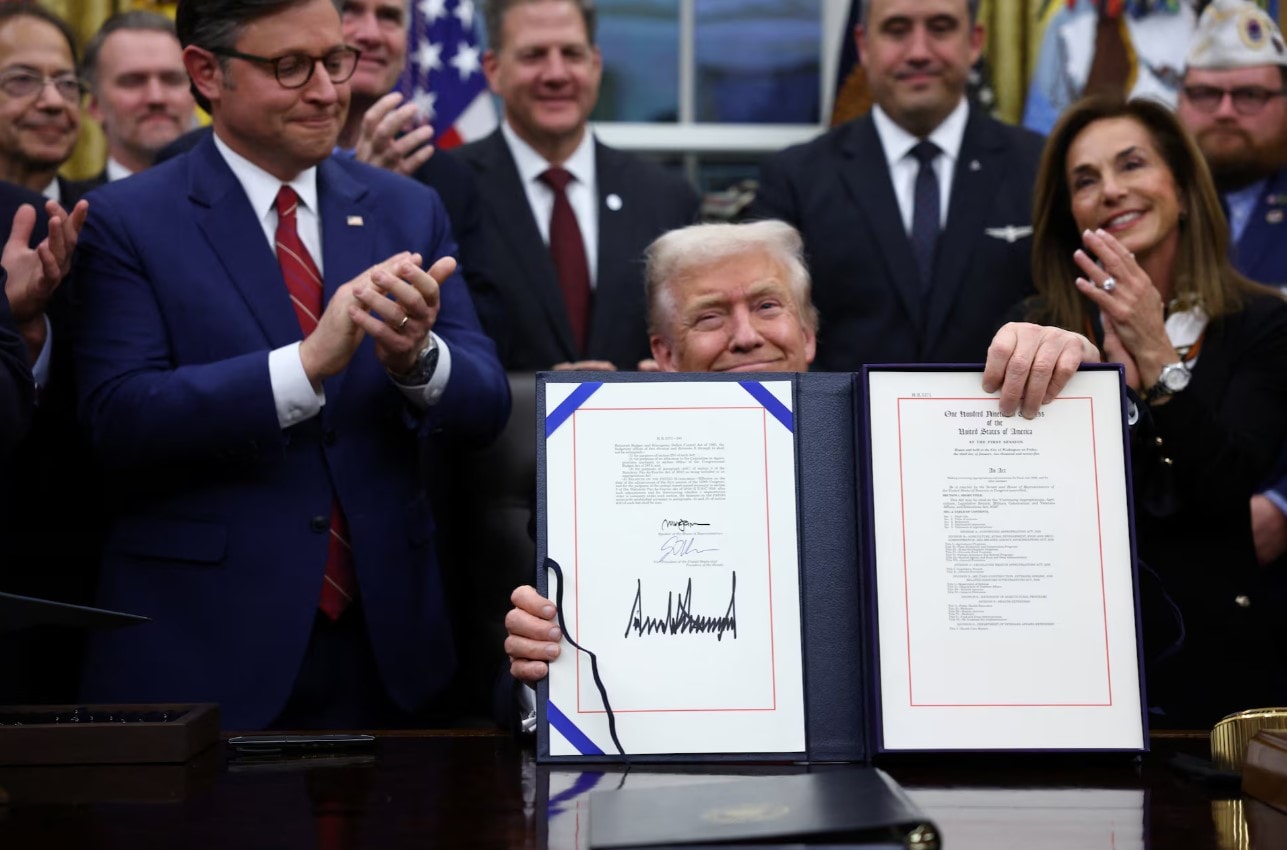President Trump signs bill ending longest US government shutdown
On November 12 (local time), US President Donald Trump officially signed into law the 43-day government shutdown - a sad record in US political history.

The move comes shortly after the House voted to pass a budget package aimed at restoring essential public services, paying hundreds of thousands of federal workers and restarting the crippled air traffic control system.
Voting process
The Republican-controlled House passed the budget package by a vote of 222 to 209. President Trump's support was key to keeping Republicans united in the face of fierce opposition from House Democrats.
Democrats expressed anger that a protracted standoff initiated by their Senate colleagues failed to secure a deal to extend federal health insurance subsidies, which are set to expire at the end of the year.
Speaking in the Oval Office during a late-night signing ceremony, President Trump took the opportunity to criticize Democrats: “We must never let this happen again. This is no way to run a country.”
The bill, which was passed by the Senate earlier this week, will extend funding for the federal government through January 30, 2026. The deal also means the federal government will continue to add about $1.8 trillion a year to the national debt, which has already reached $38 trillion.
Republican Congressman David Schweikert of Arizona likened the way Congress handled the shutdown to an episode of a popular 90s American comedy series: “I feel like I’ve just lived in a Seinfeld episode. We’ve gone 40 days and I still don’t know what the plot is. I really thought this was going to be about 48 hours: people would have their moment, they would have a heated moment, and we would get back to work.” He asked: “What happened when anger became policy?”
Immediate impact and long-term consequences
The immediate end to the shutdown offers hope for the restoration of vital services, particularly air travel, with the Thanksgiving travel rush just two weeks away. The restoration of food assistance to millions of families is also expected to free up household budgets for spending during the Christmas shopping season.
More importantly, key statistical agencies will resume providing data on the U.S. economy. The data vacuum has left investors, policymakers and households uncertain about the health of the job market, the trajectory of inflation and the pace of economic growth. However, some of the data gaps may be permanent, with the White House saying that the jobs and CPI reports covering October may never be released.
Economists estimate the shutdown has shaved more than 0.1% off gross domestic product (GDP) in about six weeks of shutdown, although much of the lost output is expected to recover in coming months.
Political divisions and subsequent problems
The vote came eight days after Democrats won a series of key elections that many in the party believed would strengthen their chances of extending health insurance subsidies. But while the deal paves the way for a Senate vote on health insurance subsidies in December, House Speaker Mike Johnson (R-Ky.) has made no similar commitment in the House.
Despite the criticism, neither party appears to have won a clear victory in public opinion. A Reuters/Ipsos poll released the same day found that 50% of Americans blame Republicans, while 47% blame Democrats.
The House of Representatives is in danger of being dragged into another investigation just after completing its constitutional budget mandate. Democratic Representative Adelita Grijalva, who was sworn in after winning a special election, has provided the final signature needed to force the House to vote on releasing all non-classified records related to sex offender Jeffrey Epstein.
Finally, the budget package also includes a provision that would allow eight Republican senators to seek hundreds of thousands of dollars in damages for alleged privacy violations stemming from the federal investigation into the January 6, 2021, attack on the Capitol. The provision retroactively allows the Justice Department to be sued for $500,000 plus attorneys’ fees and other costs if a senator’s phone records were obtained without disclosure in most cases.


